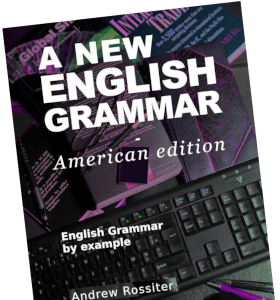
Languages in the USA
American English and other languages
About-the-USA.com
- Main
menu ►
- Life and
institutions
- Tourism & travel
- Places
★★★ About-the-USA.com ★★★
A guide to discovering the United States
A guide to discovering the United States
Language in the USA, 1. Official languages

San
Francisco - an English-speaking city with a Spanish name
One of the things that they did not do was to specify an official language. Even in the 18th century, many languages were spoken in the young United States, but it was taken for granted that the national language, the one in which official documents were written, was English. And given that a very large minority of people in the young USA spoke English, and that English-speakers held virtually all power in the country and most of the money, no voices were raised to demand that English be officially designated as the nation's national language. It was unnecessary; English was de facto the official language – by the standards of the time.
Nineteenth and early twentieth century immigrants into the USA were looking for opportunity, and understood that they needed to speak English if they wanted to move beyond the geographic limits of a linguistic enclave and climb the social ladder.
Indeed, English was so dominant in the USA until the second half of the 20th century, that few people in the USA even thought about the issue of having an official language. The young USA was linguistically tolerant just as long as the unofficial status of English as the nation's official language was seen as an established fact, even if there was no legal text to justify such an assumption. People could speak Italian, or German, or Yiddish, or French or Spanish or Chinese at home, or within their community, and nobody was at all concerned. Generally that is still very much the case today.
Furthermore, language was not seen as matter over which the federal government should have any influence. It was, in anything, a matter of everyday life, so something that was better left to individual states . Two states, Colorado and New Mexico, had already addressed the question of language in their state constitutions, yet even then there were, as there still are today, differing views about what the term "official language" should mean, and what aspects of public life it should apply to. Does making English the "official" language mean tolerating, or outlawing the use of other "unofficial" languages in public life? There is no single and consensual answer to this very fundamental question.
In the 1920s, three states, Louisiana, Illinois and Nebraska had offficial "English only" language legislation on the statute books; in Louisiana, this was a reversal of earlier constitutions which, prior to 1921, had continued to give French some kind of official status.
During the following half century, as the US grew and prospered and immigration was low, the status of English in the USA was of little popular interest. It was not until after the Vietnam war and the spread of ideals of multiculturalism that state legislatures became interested in the status of English – either with the aim of ensuring the hegemony of the English language and "American" culture, or of ensuring the rights of speakers of other languages. By the 2020s thirty-one of the fifty states in the USA had enacted some kind of official language legislation, and polls suggest that four out of five Americans support the idea of federal legislation on this matter.
Yet as the Washington Post put it in an article published in 2014, "the scope of what falls under English-official laws varies dramatically across states... and some carry little weight."
Since the 1980s, the question of offical language status in American states has become increasingly ideological, with some states legislating to protect the rights of linguistic minorities, notably Native Americans (Indians) and Spanish speakers, and others legislating to limit the use of languages other than English in a variety of different situations. A movement by the name of ProEnglish has been trying since the late twentieth century to get Congress to adopt a law making English the official language of the United States, but so far without success.
Those who are in favor of making English the official language of the USA (who include many who grew up speaking other languages) claim that it will stimulate the integration of linguistic and cultural minorities into mainstream American life. Opponents, who view cultural diversity as one of the USA's great strengths, tend to see the movement to impose English as the official language of the USA, as an attempt to limit the rights of speakers of other languages and reduce cultural diversity. There is also a strong case to claim that the establishment of an official language at federal level would be unconstitutional, and contrary to the Second Amendment rights that guarantee freedom of speech.
As immigration continues to bring large numbers of speakers of other languages into the USA, the question of the status of the English language is not going to fade away; on the contrary, it is likely to become more of a hot potato. Official census bureau projections released in 2014 suggest that Hispanics could represent over 50% of the population of California by some time in the 2050's.
► Continue with part 2. American English; is it different?
For more background to the USA.....
► Book / ebook A Background to modern America - people, places and events that have played a significant role in the shaping of modern America. A C1-level Advanced English reader for speakers of other languages, and anyone wanting to learn some of the background to today's USA. Twenty-two texts, with vocabulary guides and exercises.About-the-usa.com
Home
page
"One of the most practical
grammar reference books we’ve seen"
Waesol
Educator magazine, Washington
The
American
English editon of
the best- selling Descriptive Grammar of English. Paperback or ebook
from just $4.99CLICK FOR DETAILS

Health care for visitors and tourists to the USA
People visiting the USA as a tourist, even those with US citizenship, are very strongly advised to take out a travel health insurance policy to cover their stay/s in the USA. Medical costs in the USA can be very high, and even a simple visit to a doctor can cost typically between $100 and $200, and a day in hospital may well cost over $3,000.About-the-USA.com
is
an independent guide to the USA, free of external advertising. Pages
may contain links to useful external websites, including US government
websites and other official sources, as well as
affiliate links to relevant travel service providers. A small
commission may be earned from purchases made through these
affiliate links.
Other
places, other countries...
Partner websites
Institutions, life and tourism- About France - a thematic guide to France. Over 200 pages of information for visitors and students.
- About Britain - a thematic introduction to Britain covering institutions, life and tourism
- Angleterre.org.uk - Le guide de l'Angleterre, en français
Travel and tourism
- About Quebec - Discover the French-speaking province of Canada
- About California - a thematic travel guide to California
- About-Portugal.com - Discover Portugal and its regions
- About Spain - discover the real Spain - an incomplete guide to Spain on and off the beaten track
Text © About-the-usa.com
About : About-the-usa.com is a Travel-Webs site
To contact this website please use the form provided.
Photo credits.
Top of page by Kindel Media
